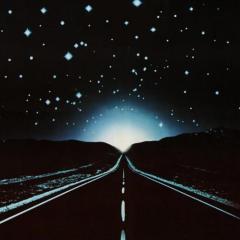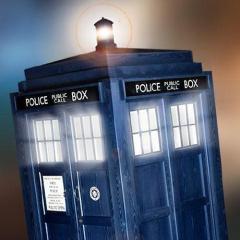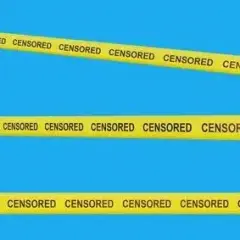-
Posts
98 -
Joined
-
Last visited
Profile
-
Title (custom text underneath your username)
The Next James Bond
-
Location
Europe / USA / UK
Recent Profile Visitors
830 profile views
-
 Badzeee reacted to a post in a topic:
Next James Bond actor after Daniel Craig?
Badzeee reacted to a post in a topic:
Next James Bond actor after Daniel Craig?
-
 Badzeee reacted to a post in a topic:
John Williams returns to Berlin for three concerts, June 5-7 2025
Badzeee reacted to a post in a topic:
John Williams returns to Berlin for three concerts, June 5-7 2025
-
 Docteur Qui reacted to a post in a topic:
Next James Bond actor after Daniel Craig?
Docteur Qui reacted to a post in a topic:
Next James Bond actor after Daniel Craig?
-
 Badzeee reacted to a post in a topic:
John Williams returns to Berlin for three concerts, June 5-7 2025
Badzeee reacted to a post in a topic:
John Williams returns to Berlin for three concerts, June 5-7 2025
-
 Chewy reacted to a post in a topic:
John Williams returns to Berlin for three concerts, June 5-7 2025
Chewy reacted to a post in a topic:
John Williams returns to Berlin for three concerts, June 5-7 2025
-
 BB-8 reacted to a post in a topic:
John Williams returns to Berlin for three concerts, June 5-7 2025
BB-8 reacted to a post in a topic:
John Williams returns to Berlin for three concerts, June 5-7 2025
-

John Williams returns to Berlin for three concerts, June 5-7 2025
Badzeee replied to Jay's topic in JOHN WILLIAMS
"Advance sale from February 23rd, 2025" Gives me time to raise funds... -
 Badzeee reacted to a post in a topic:
JAWS - 2015 Intrada 2CD Release (Complete film tracks & original LP re-recording)
Badzeee reacted to a post in a topic:
JAWS - 2015 Intrada 2CD Release (Complete film tracks & original LP re-recording)
-
 Trope reacted to a post in a topic:
JAWS - 2015 Intrada 2CD Release (Complete film tracks & original LP re-recording)
Trope reacted to a post in a topic:
JAWS - 2015 Intrada 2CD Release (Complete film tracks & original LP re-recording)
-
 Mr. Hooper reacted to a post in a topic:
JAWS - 2015 Intrada 2CD Release (Complete film tracks & original LP re-recording)
Mr. Hooper reacted to a post in a topic:
JAWS - 2015 Intrada 2CD Release (Complete film tracks & original LP re-recording)
-
 Yavar Moradi reacted to a post in a topic:
JAWS - 2015 Intrada 2CD Release (Complete film tracks & original LP re-recording)
Yavar Moradi reacted to a post in a topic:
JAWS - 2015 Intrada 2CD Release (Complete film tracks & original LP re-recording)
-

Will John Williams score Steven Spielberg's new UFO movie?
Badzeee replied to Jay's topic in JOHN WILLIAMS
I hope he does it. C’mon! Of course he will! He’ll want to, anyway. -
 Badzeee reacted to a post in a topic:
Star Trek (2025 Prequel film directed by Toby Haynes)
Badzeee reacted to a post in a topic:
Star Trek (2025 Prequel film directed by Toby Haynes)
-

Star Trek (2025 Prequel film directed by Toby Haynes)
Badzeee replied to Giftheck's topic in General Discussion
I guess they could set it before ST: Enterprise. I dunno why they'd want to do that, although that's when the "invention of replicator tech" story could take place. That's potentially a super-interesting, dramatic SF story, but not one that necessarily needs telling in the context of a Star Trek movie. That is, I don't see how that's going to appeal to mass audiences. This is, perhaps, the magic of Hollywood, however. Lead into gold, and all that. Initially, I had hugely mixed feelings about the whole Kurtzman-era of Star Trek. It's the same brand, superficially, and I'd be lying if I said I hadn't enjoyed some of it (most of Strange New Worlds and Prodigy), but much of the rest of it I find virtually unrecognisable as Star Trek. These days, I come at any new Trek project as if a new creative team has been assigned to a fave comic book - see what they do with the tropes, how they handle classic characters, that sort of thing. It absolves me of me having to have any strong feelings about it one way or another, and I can happily enjoy all the ST shows I loved in my youth. None of which doesn't make me wish sometimes they'd just boldly go, exploring new SF ideas and the human condition, instead of endlessly rehashing the mythology. -
 Badzeee reacted to a post in a topic:
Star Trek (2025 Prequel film directed by Toby Haynes)
Badzeee reacted to a post in a topic:
Star Trek (2025 Prequel film directed by Toby Haynes)
-
 Badzeee reacted to a post in a topic:
Star Trek (2025 Prequel film directed by Toby Haynes)
Badzeee reacted to a post in a topic:
Star Trek (2025 Prequel film directed by Toby Haynes)
-
 Nick1Ø66 reacted to a post in a topic:
Star Trek (2025 Prequel film directed by Toby Haynes)
Nick1Ø66 reacted to a post in a topic:
Star Trek (2025 Prequel film directed by Toby Haynes)
-
 Tallguy reacted to a post in a topic:
Star Trek (2025 Prequel film directed by Toby Haynes)
Tallguy reacted to a post in a topic:
Star Trek (2025 Prequel film directed by Toby Haynes)
-

Star Trek (2025 Prequel film directed by Toby Haynes)
Badzeee replied to Giftheck's topic in General Discussion
Is a "Star Trek origin story" when they invented replicators and created the land of plenty? Or maybe it's the Earth vs Romulans war. Or the launch of the Federation? All are terrible ideas... don't explain the backstory. Of all the things Star Trek doesn't need, it's an origin story. If this turns out to be an amazing film, I'll happily eat my hat, but it sounds like the idea absolutely no-one was hoping to see. Enterprise effectively worked as a prequel (as opposed to "origin") but I'd really like to know what the thinking is, in Hollywood terms. -
 Badzeee reacted to a post in a topic:
Star Trek (2025 Prequel film directed by Toby Haynes)
Badzeee reacted to a post in a topic:
Star Trek (2025 Prequel film directed by Toby Haynes)
-
 Badzeee reacted to a post in a topic:
Star Trek (2025 Prequel film directed by Toby Haynes)
Badzeee reacted to a post in a topic:
Star Trek (2025 Prequel film directed by Toby Haynes)
-
 Badzeee reacted to a post in a topic:
Are There Any Film Composers Working Who Can’t Read/Write Music?
Badzeee reacted to a post in a topic:
Are There Any Film Composers Working Who Can’t Read/Write Music?
-

Are There Any Film Composers Working Who Can’t Read/Write Music?
Badzeee replied to Mr. Gitz's topic in General Discussion
(I was just ribbing you; it's cool. Thanks for taking the time to describe these processes in an almost visual way - greatly appreciated.) Not being a musician myself (though many of my friends and family are), the nuances of writing music sometimes escape me. It makes absolute sense that there'd be a difference in the result, because of the approach taken, whether writerly (pure notation before orchestration), a combo method (sketches via piano or some other instrument, then notation and orchestration) and technical, via a computer keyboard in the studio. Which is, I s'pose, the core of the discussion here. Which is best? (Is it just preference, according to age?) Personally, I love the likes of Williams, Morricone, Barry and Hisaishi. Most modern film and TV scores tend towards the textural as opposed to the thematic and melodic. Some of it I like, and there's the odd modern composer that I think does, or has done genuinely interesting and memorable stuff. However, much of it I find bland. Much modern scoring does the job as a soundscape, but I can't think of many scores that really help drive story, in the way all the above-named are masters at. Maybe I'm old-fashioned, but I really miss the latter approach. -

Are There Any Film Composers Working Who Can’t Read/Write Music?
Badzeee replied to Mr. Gitz's topic in General Discussion
Interesting… That’s quite a beautiful and adroit description of how he worked, and illuminating. (Except for the finger-wagging opening.) I’m fascinated by the early processes of making music, and how some, like John Williams, are literally able to write complex sketches on pieces of paper (or via piano, I’m not sure what comes first) before refining - and for others, they go straight for a guitar or electronic keyboard and skip that part of the process entirely. Which seems to be the modern approach. I stand corrected. Shouldn’t listen to hearsay. Nevertheless, here I go again, as I thought of some other actual film composers, currently alive, who are rumoured - rumoured, I emphasise - to not bother with musical notation. And that’s Tom Tykwer, Johnny Klimek and Reinhold Heil. -

Are There Any Film Composers Working Who Can’t Read/Write Music?
Badzeee replied to Mr. Gitz's topic in General Discussion
You don't need to read music to be a brilliant composer. Benny Andersson of ABBA doesn't read music - co-wrote some of the most popular songs of all time. A genius. Paul McCartney; same. Mike Scott of The Waterboys doesn't read music - brilliant songwriter. Pretty sure Stevie Wonder doesn't read music, because he can't see. Not in the sense of having working eyeballs, at least, but he "writes" better music than many with a full working set of acknowledged human senses. Stravinsky is said not to have been able to write musical notation. Captain Beefheart famously used to impart his musical ideas to his musicians and "painted" his songs via their perceptions. In terms of film music composition, I've read that Hans Zimmer creates musical "sketches" that are filtered through orchestrators, and Danny Elfman, like many of the above mentioned, comes from a rock band background and has a similar approach.. All of the above is music composition of some description. Is improv a valid approach to music composition? Absolutely, 100%. Can you compose by "making something up" as you go along? For sure, even if you have to get somebody else to record it and write it down for you afterwards. Is that practical for film composition? Probably not, but notation is essentially a mathematical language, a code that is the foundation for a performance, and play and performance come first in terms of the creation of new compositions. Reading and writing musical notation is just a formal language that originally evolved to record musical ideas; a way of recording templates for eventual performance. You need rules to make art. You need building blocks - notation, be it an alphabet, numerals, etc. It's useful and super-important. However, you can come at any concept of making art from a myriad of angles, and these days, tech is an approach that enables musically adept people to go straight from play/perfomance to record, skipping the act of notation. Sometimes, it's those who don't or haven't learnt (or are actually physically unable to follow) the rules who find new ways forward. I think attempting to tie any language to one absolute form, or saying only one grammatical approach is valid, will always and inevitably be too narrow, because any language - especially music - is always evolving. -
Didn't know that. I'll seek it out. I do recall that John Williams was supposed to do the music but was forced to pass because production was so delayed and he could no longer fit it into his schedule. Also that it was beset by all sorts of VFX problems during production which caused its budget to soar.
-
I'd forgotten this! And that Sean Connery was in it. Karl Malden and Natalie Wood, Martin Landau... great, all-star cast... It was supposed to be the be-all and end-all of disaster flicks, and if a disaster movie stands or falls on its VFX, this one was definitely an abysmal failure, with one of the most tedious final acts I can recall sitting through. (I actually went to see it as a kid.)
-
James Bond should definitely be played by a bloke. M was deliberately baiting Bond when she called him a “sexist, misogynist dinosaur.” He’s sexist, sure, but misogynist? Arguably, Connery’s Bond was - he was written to be, but all Bonds are a product of their time. Moore, far less of one, especially with each passing film. There’s that daft bit in Moonraker where he says to Dr. Holly Goodhead, “Oh. A woman!” in a condescending way, and that comment by Judi Dench’s M many films later is an in-universe riposte to moments like that. Bond’s apparent superiority complex isn’t the usual though - he’s not concealing any sense of insecurity. He uses it as a way of gaining information, to provoke, and he’s like this with male and female alike, including colleagues. He drops the provocative approach when he respects a person, and then it becomes the trademark droll wit. With opponents, the provocative approach is a weapon, a way of exposing their Achilles heel(s). Sure, you could invert it and do all that with a female “Bond” too, but what would be the point? You might as well invent an entirely new character. It'll be interesting to see what EON do next...
-
Hence "something they'd have to build into the canon," as in something they'd have to acknowledge onscreen to then appeal to the widest possible demographic. In short, I agree, it could be (and should be open to) literally anyone. It's not a new idea, but Bond, like Doctor Who and Sherlock Holmes, has amongst its fans millions of self-appointed gatekeepers who think they know what's best for the character. I think all three characters are staples of British mythology, and all mythology is flexible enough to be reinterpreted by new storytellers. Ya gotta move with the times.
-
Bond is, according to the books, half-Swiss, half-Scottish (and all British). Skyfall even goes all in on the literary source by showing us his ancestral home. If I was gonna cast a black Bond, there's a gigantic wellspring of talent to choose from when it comes to young black British actors. Just, please, not Idris Elba. Maybe EON will do an all-black Bond, just to mess with the racists? That would be funny. Promote Naomie Harris to M, get David Harewood in there as Q, Daniel Kaluyaa or some other brilliant young performer as Bond and populate MI6 with various other agents of colour. Imagine the furore. I'm all for characters being reimagined, simply because it allows new life to be breathed into concepts that are rooted in a certain time. It's built in to Doctor Who, but realistically, I don't think EON would cast a black actor as Bond (I'd really, really like to be proved wrong); at least not without a radical rethink of what "Bond" is; something they'd have to build into the canon. Something else y'all should see, if you haven't already, here (scroll down). I found this bizarre, but for all its deep weirdness, it shows we're probably not too far off something similar being created for mainstream cinema or TV, whatever provisions Hollywood has sorted for creatives behind the camera.
-
I like him too. I guess screens Bonds are either suave or feral - Moore, Brosnan and Lazenby the former, Connery, Dalton and Craig the latter. Theo James might have more of the Moore about him...
-

What was your first encounter with Jerry Goldsmith?
Badzeee replied to GerateWohl's topic in General Discussion
My pleasure, and thanks. I hope you do.






